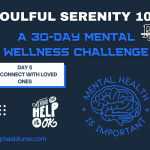
Happiness is a pursuit shared by people around the world. We all desire to lead fulfilling and joyful lives, but often, this pursuit seems elusive. Many of us believe that happiness is contingent on major life events or circumstances, such as finding the perfect job, achieving financial success, or meeting the love of our lives. While these moments can certainly bring joy, they are often temporary, and the quest for lasting happiness continues.
The good news is that happiness isn’t solely reliant on external factors or major life events. It can be cultivated through small, daily habits that gradually accumulate and have a significant impact on our overall well-being. In this article, we will explore a variety of happiness habits that are easy to incorporate into your daily routine. These habits, when practiced consistently, can help you experience a profound and lasting sense of happiness.
1. Gratitude Journaling
One of the simplest and most effective happiness habits is keeping a gratitude journal. This practice involves regularly writing down things you’re thankful for. It could be as significant as landing a new job or as small as enjoying a delicious cup of coffee in the morning.
Research has shown that practicing gratitude can lead to increased happiness and life satisfaction. When you actively acknowledge and appreciate the positive aspects of your life, it shifts your focus away from what you lack or what’s going wrong. Instead, you begin to notice and celebrate the abundance of positivity around you.
To incorporate gratitude journaling into your daily routine, set aside a few minutes each day, preferably in the morning or before bed. Write down three to five things you’re grateful for, and be specific. For example, instead of writing “I’m grateful for my family,” you could write, “I’m grateful for the supportive conversations I had with my family members today.” Over time, this practice can help rewire your brain to be more attuned to the positive aspects of your life.
2. Mindfulness Meditation
Mindfulness meditation is a powerful habit that can enhance your overall sense of well-being and happiness. It involves paying deliberate attention to the present moment, without judgment. Mindfulness meditation helps you become more aware of your thoughts and feelings, allowing you to respond to life’s challenges with greater clarity and equanimity.
Research has consistently shown that mindfulness meditation can reduce stress, anxiety, and symptoms of depression while increasing happiness, self-awareness, and emotional regulation. Even just a few minutes of daily mindfulness practice can make a significant difference.
To get started with mindfulness meditation, find a quiet space, sit comfortably, and focus on your breath. Pay attention to the sensation of your breath as it enters and exits your nostrils or the rise and fall of your chest and abdomen. When your mind inevitably wanders, gently bring your focus back to your breath without self-criticism. Start with a few minutes each day and gradually increase the duration as you become more comfortable with the practice.
3. Regular Exercise
Exercise is not only beneficial for your physical health but also plays a crucial role in promoting happiness and mental well-being. When you engage in physical activity, your body releases endorphins, often referred to as “feel-good” hormones. These endorphins can elevate your mood and reduce symptoms of anxiety and depression.
Additionally, exercise provides a sense of accomplishment, boosts self-esteem, and improves body image—all of which contribute to overall happiness. Whether it’s going for a run, practicing yoga, or simply taking a brisk walk, finding a physical activity you enjoy can make it easier to incorporate into your daily routine.
To establish a consistent exercise habit, start with a realistic goal and gradually increase the intensity and duration of your workouts. Remember that it’s essential to choose activities you genuinely enjoy to make exercise a sustainable part of your life.
4. Acts of Kindness
Engaging in acts of kindness towards others is a surefire way to boost your own happiness. When you perform acts of kindness, whether it’s helping a friend in need, volunteering your time, or simply offering a compliment, it generates positive emotions within you. This, in turn, leads to an increased sense of happiness and fulfillment.
Research in the field of positive psychology has shown that performing acts of kindness can have a profound impact on your well-being. It not only improves your mood but also enhances your sense of connectedness to others and your community.
To incorporate acts of kindness into your daily life, look for opportunities to help or uplift others. It doesn’t have to be a grand gesture; even small acts of kindness can make a significant difference. Challenge yourself to perform one act of kindness each day, and observe how it positively affects your happiness and the people around you.
5. Cultivate Social Connections
Humans are inherently social creatures, and our relationships with others play a fundamental role in our happiness. Cultivating meaningful social connections is a vital happiness habit. Spending time with friends and loved ones, sharing experiences, and engaging in deep conversations can provide a profound sense of fulfillment and joy.
Loneliness and social isolation, on the other hand, are linked to decreased well-being and an increased risk of mental health issues. To foster social connections, make an effort to maintain and strengthen your existing relationships. Reach out to friends, schedule regular meetups, and prioritize spending quality time with loved ones.
Additionally, consider expanding your social network by joining clubs, groups, or organizations that align with your interests and passions. These shared activities can lead to new friendships and a broader support system, enhancing your overall happiness.
6. Pursue Meaningful Goals
Setting and pursuing meaningful goals can give your life a sense of purpose and direction, contributing significantly to your overall happiness. When you have clear objectives that align with your values and passions, it provides a source of motivation and fulfillment.
To harness the power of goal-setting for happiness, start by identifying your long-term and short-term goals. These could range from career aspirations to personal growth objectives. Break these goals down into manageable steps, creating a roadmap for your journey.
As you make progress toward your goals, celebrate your achievements, no matter how small they may seem. This positive reinforcement will help boost your confidence and maintain your motivation. Remember that it’s essential to choose goals that genuinely resonate with you and bring you joy, rather than pursuing them solely for external validation.
7. Prioritize Self-Care
Self-care is an often-overlooked happiness habit that is crucial for maintaining mental and emotional well-being. It involves taking deliberate steps to nurture and care for yourself, both physically and emotionally. Neglecting self-care can lead to burnout, stress, and decreased happiness.
Self-care practices vary from person to person, as they should be tailored to your individual needs and preferences. It could include activities such as taking relaxing baths, practicing mindfulness, indulging in hobbies, getting adequate sleep, or setting healthy boundaries.
To make self-care a regular habit, schedule dedicated time for it in your daily or weekly routine. Treat self-care as a non-negotiable part of your life, just as you would with work or other responsibilities. By consistently taking care of yourself, you’ll be better equipped to handle life’s challenges and experience greater happiness.
8. Embrace a Growth Mindset
Your mindset significantly influences your happiness and how you perceive challenges and setbacks. Embracing a growth mindset, as opposed to a fixed mindset, can lead to increased resilience, adaptability, and overall well-being.
A growth mindset is the belief that your abilities and intelligence can be developed through effort, learning, and perseverance. People with a growth mindset are more likely to view challenges as opportunities for growth and to bounce back from setbacks with greater determination.
To cultivate a growth mindset, start by reframing your beliefs about failure and challenges. Instead of seeing them as indicators of your limitations, view them as stepping stones on your journey to improvement. Challenge negative self-talk and self-limiting beliefs, replacing them with positive affirmations that encourage growth and resilience.
9. Disconnect from Digital Devices
In today’s hyperconnected world, our constant interaction with digital devices can have a detrimental effect on our happiness and overall well-being. Excessive screen time, social media comparison, and information overload can contribute to stress, anxiety, and feelings of inadequacy.
To improve your happiness, consider implementing digital detoxes into your routine. Set aside specific times each day or week to disconnect from your devices. During these breaks, engage in offline activities that bring you joy, such as reading a book, going for a nature walk, or spending quality time with loved ones.
Additionally, practice mindful technology use by setting boundaries and limiting the time you spend on social media and other digital platforms. This will help you regain control over your digital habits and prioritize real-life experiences and connections.
10. Practice Forgiveness
Holding onto grudges, resentment, or anger can be a significant barrier to happiness. Learning to practice forgiveness—both for others and yourself—can free you from the burden of negative emotions and promote emotional well-being.
Forgiveness does not mean condoning or excusing hurtful behavior; rather, it involves letting go of the negative emotions associated with the experience. By forgiving others, you release yourself from the emotional weight that can drag you down. Similarly, forgiving yourself for past mistakes and shortcomings allows you to move forward with greater self-compassion and inner peace.
To practice forgiveness, start by acknowledging the pain or hurt you’ve experienced. Reflect on the situation and consider the perspective of the other person involved. Remember that forgiveness is a process that takes time and may require support from a therapist or counselor. As you work through forgiveness, you’ll find that it lightens your emotional load and contributes to your overall happiness.
11. Embrace the Power of Positivity
The way you frame your thoughts and perceptions has a profound impact on your happiness. Embracing positivity involves consciously shifting your focus toward optimistic and constructive thoughts. By cultivating a positive mindset, you can navigate life’s challenges with greater resilience and joy.
Practice positive self-talk by challenging negative or self-deprecating thoughts. When faced with adversity, seek out the silver lining or the lessons you can learn from the experience. Surround yourself with positive influences, whether through uplifting books, podcasts, or supportive social connections.
Engage in activities that bring you joy and make you feel good about yourself. The more you immerse yourself in positivity, the more it becomes a natural and enduring part of your mindset. Over time, this shift toward positivity will enhance your overall happiness.
12. Live in the Present Moment
Many people spend a significant portion of their lives dwelling on the past or worrying about the future. However, true happiness is often found in the present moment. When you fully engage with the here and now, you can experience a deeper sense of contentment and joy.
Practicing mindfulness, as mentioned earlier, is an excellent way to live in the present moment. Mindfulness involves paying attention to your thoughts, feelings, and sensations without judgment. It allows you to fully appreciate the beauty and richness of each moment.
To live in the present, make an effort to savor everyday experiences, whether it’s enjoying a meal, watching a sunset, or spending time with loved ones. Minimize distractions and be fully present in whatever you’re doing. By doing so, you can unlock the happiness that exists in the here and now.
13. Seek Professional Help When Needed
While these happiness habits can be incredibly beneficial for your well-being, it’s essential to recognize that everyone’s journey to happiness is unique, and there may be obstacles or challenges that require professional help to overcome. If you find that persistent feelings of sadness, anxiety, or unhappiness are affecting your daily life, seeking the assistance of a mental health professional can be a crucial step toward lasting happiness.
Therapists, counselors, and psychologists are trained to help individuals address and manage a wide range of emotional and mental health issues. They can provide support, guidance, and evidence-based strategies to improve your overall well-being and happiness. Don’t hesitate to reach out for help if you believe it could benefit you.
Conclusion
Happiness is not an elusive concept reserved for a lucky few; it is a state of being that can be cultivated through intentional habits and practices. By incorporating these happiness habits into your daily routine, you can gradually shift your mindset and experience a profound and lasting sense of joy and fulfillment.
Remember that happiness is a journey, not a destination. It’s perfectly normal to have moments of sadness or difficulty along the way. The key is to persevere and continue nurturing these habits, allowing them to transform your life over time. By doing so, you can embark on a path to greater happiness and well-being that will positively impact every aspect of your life.







